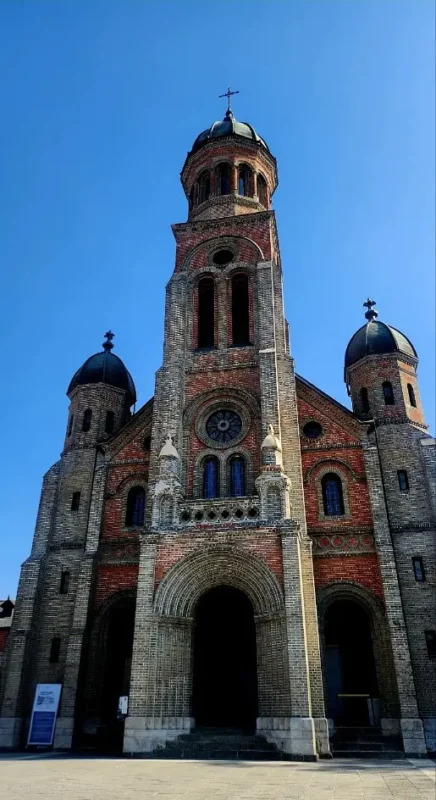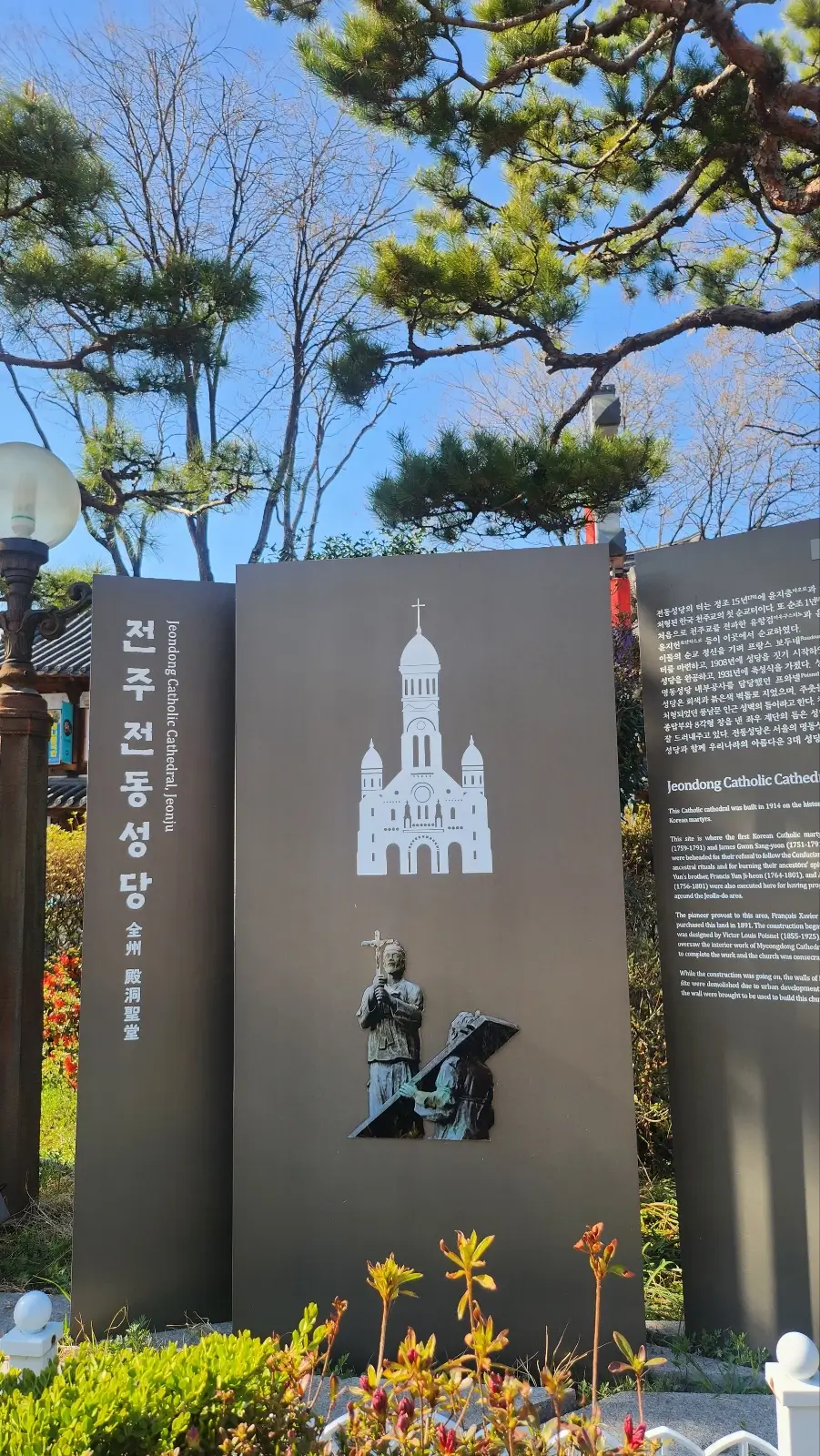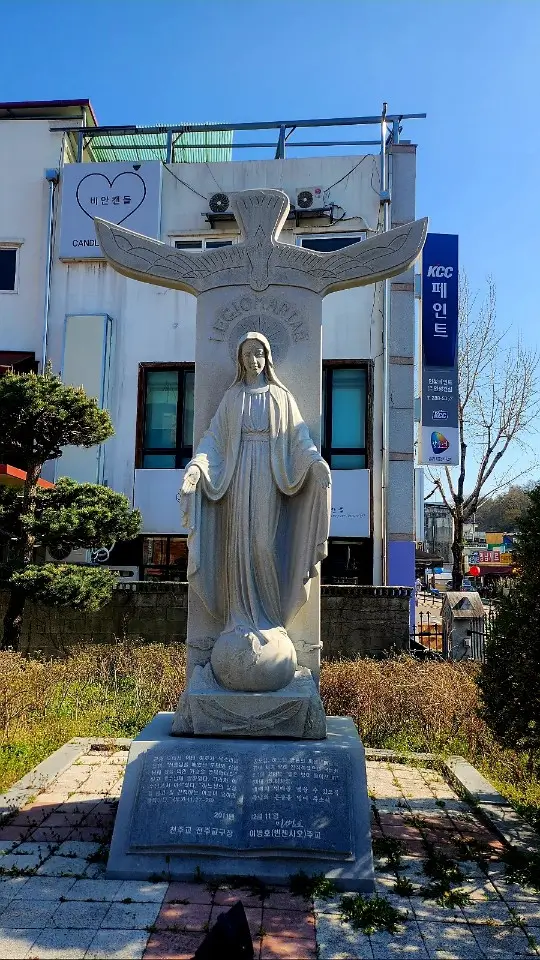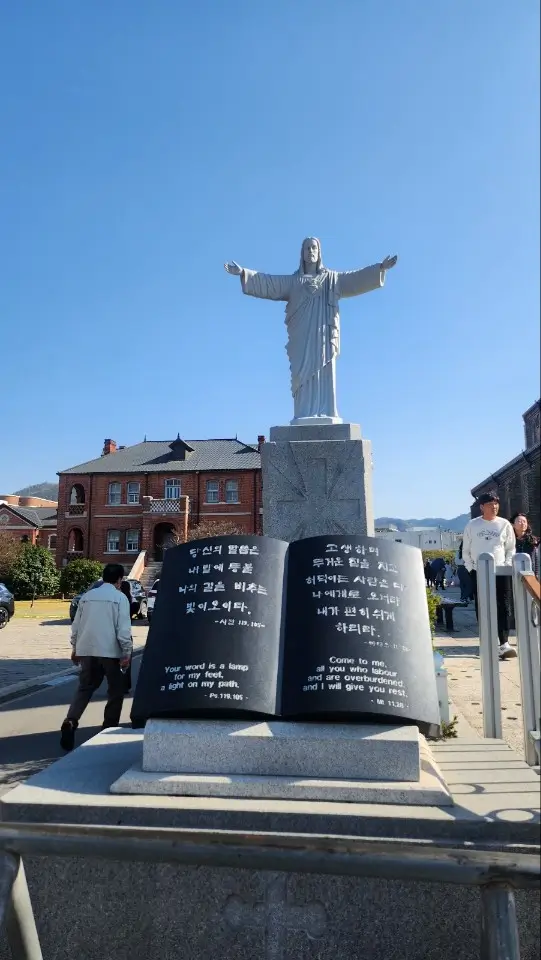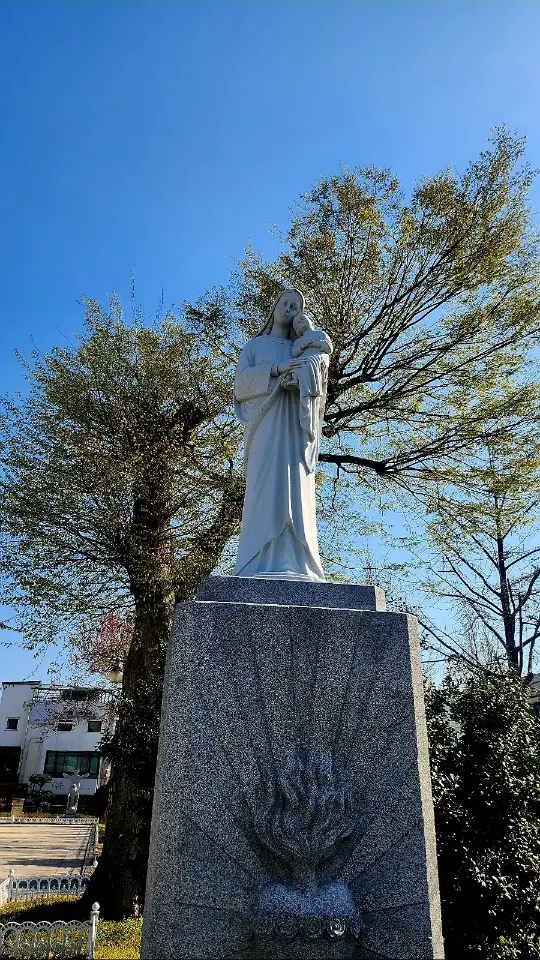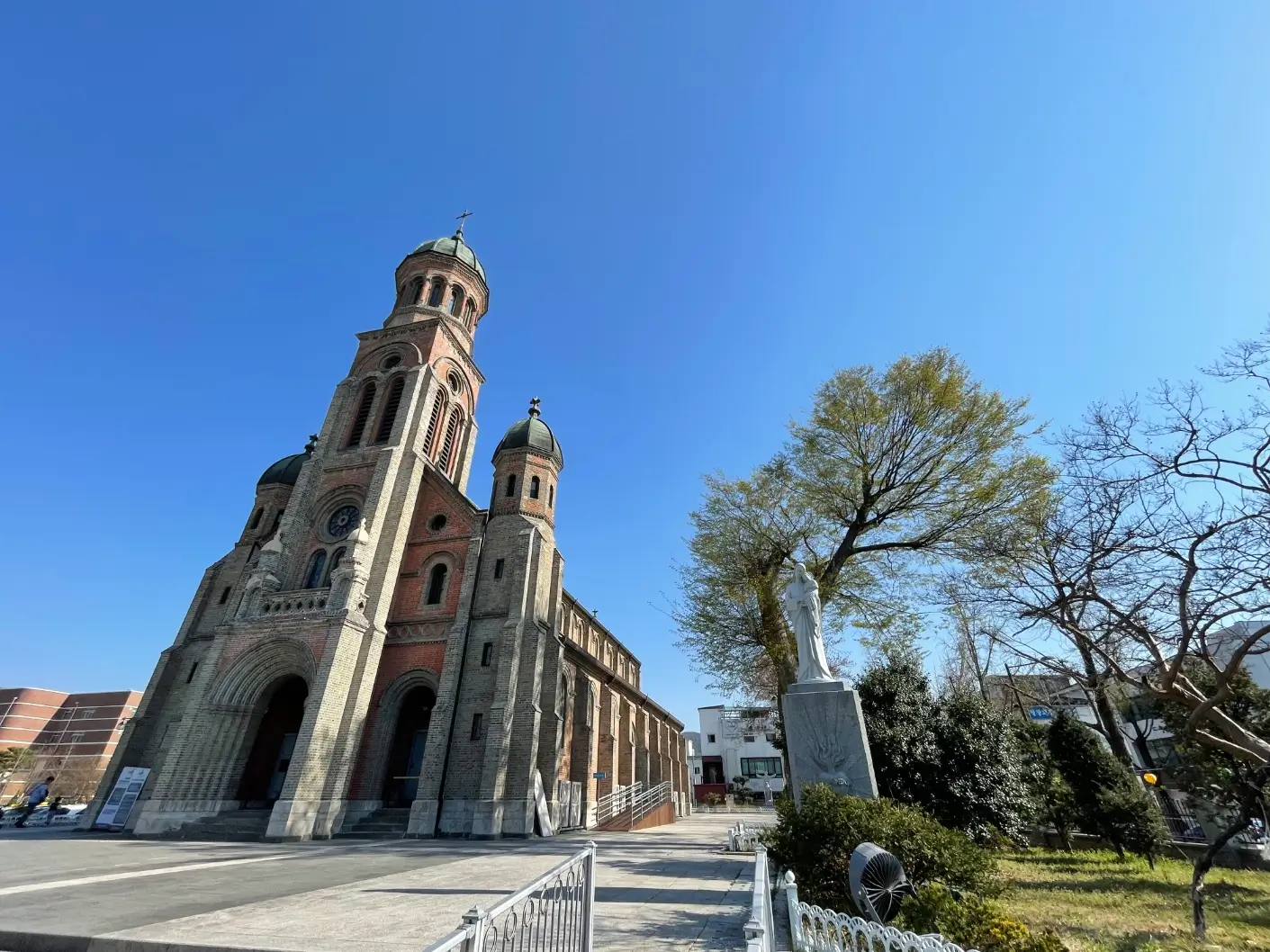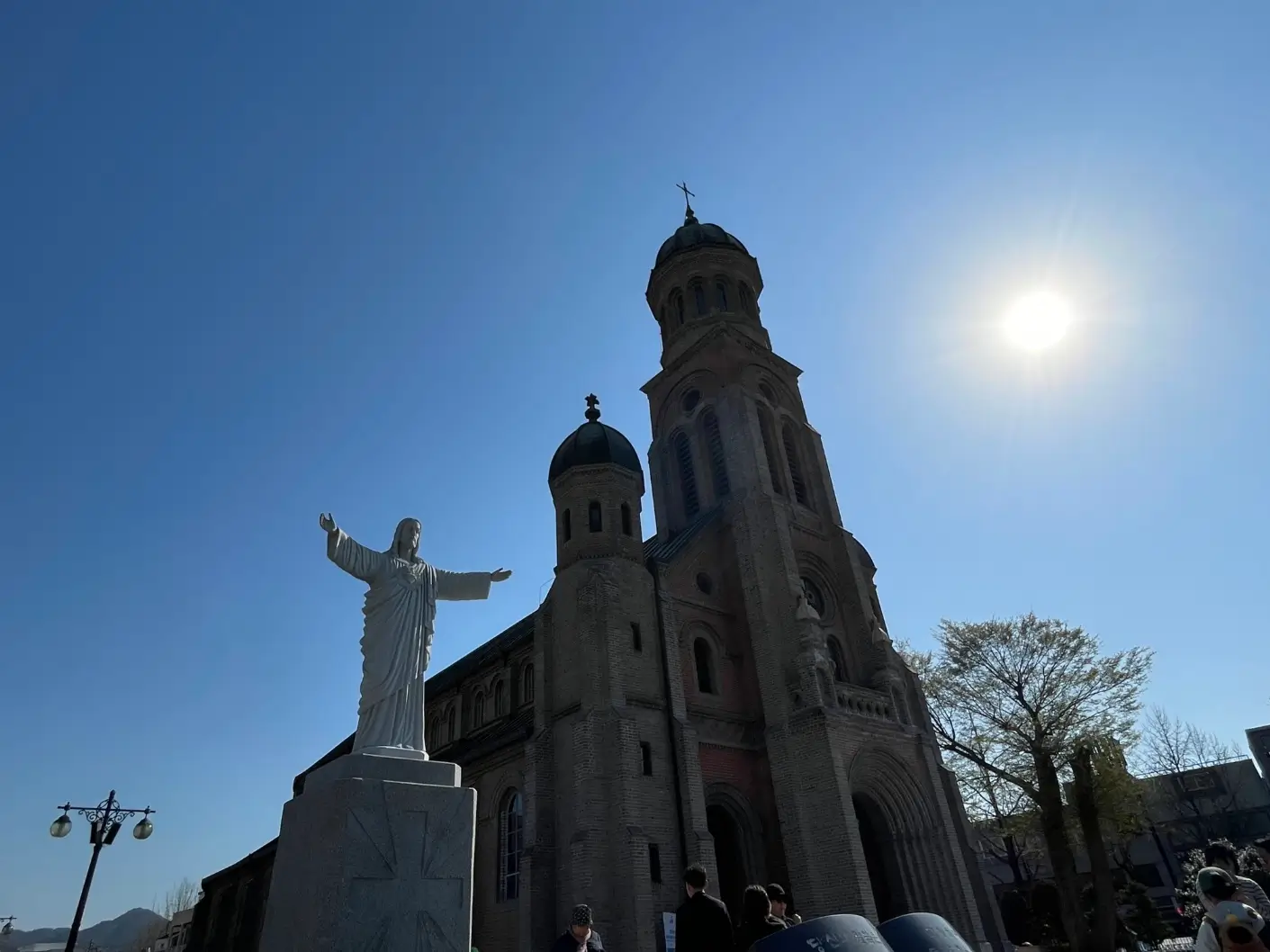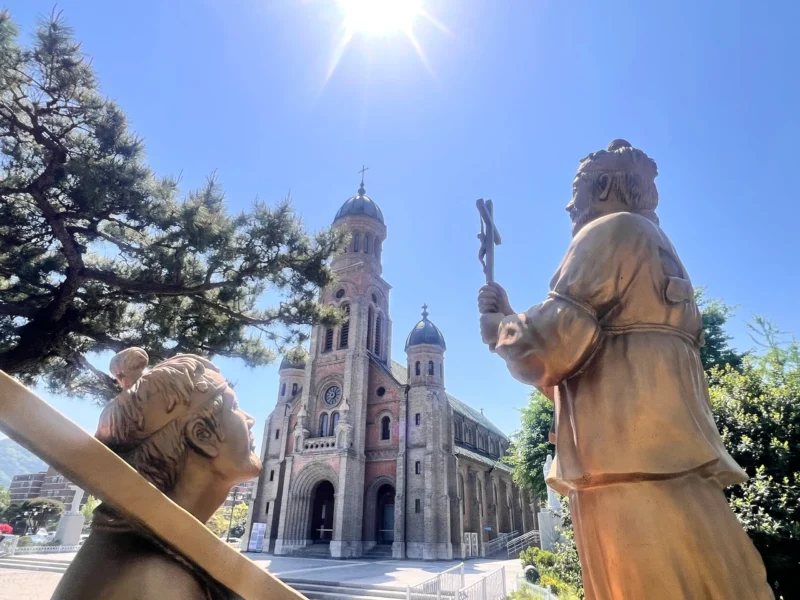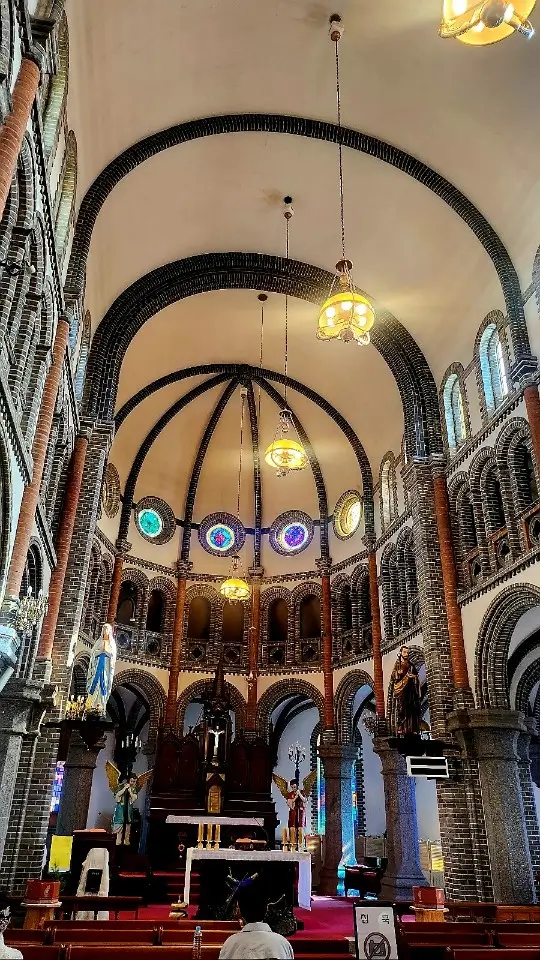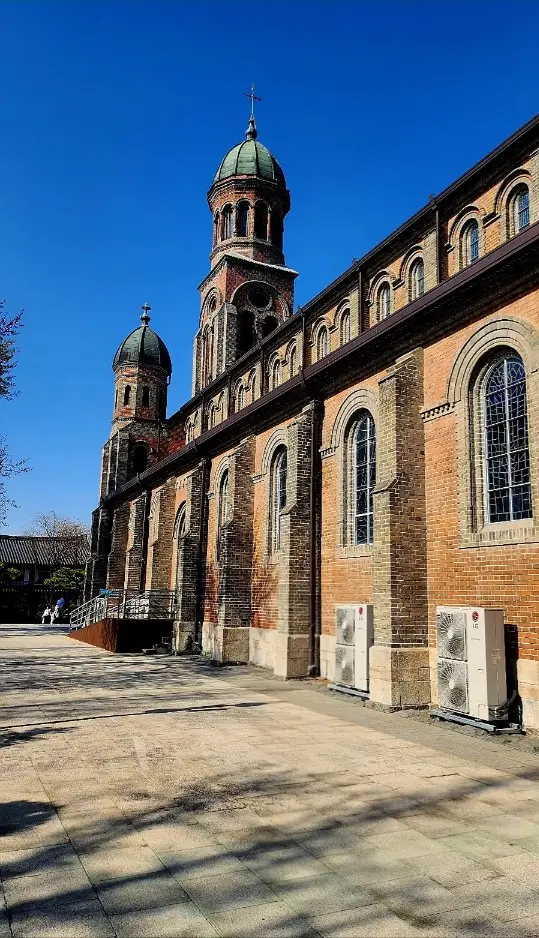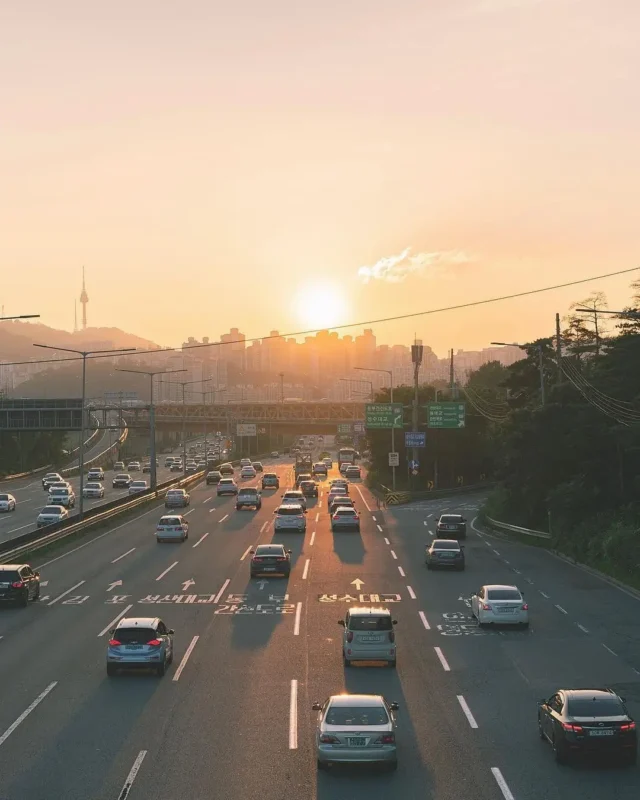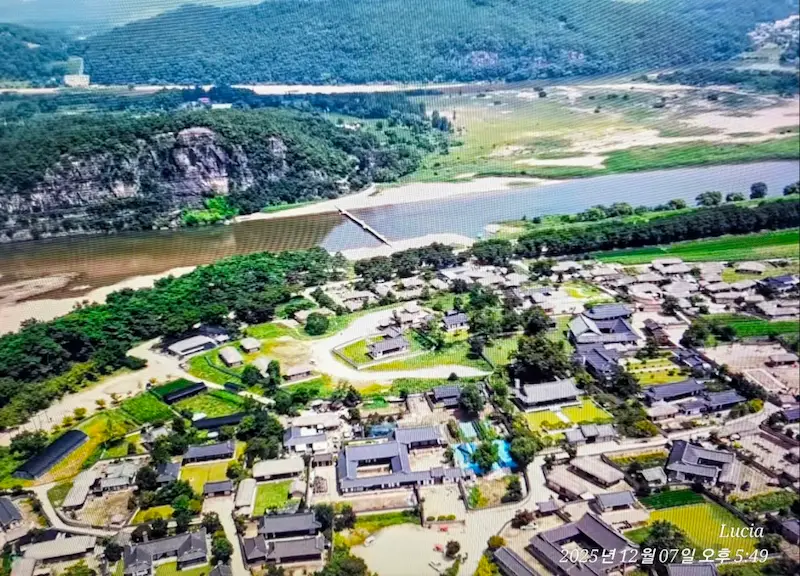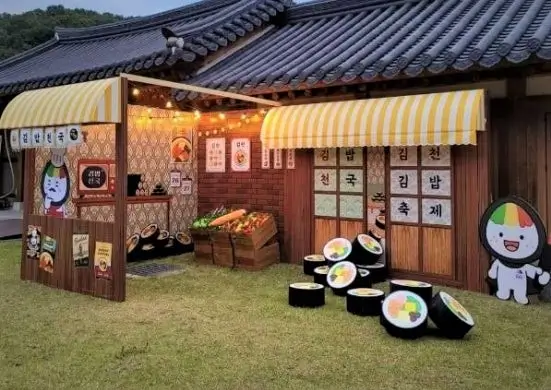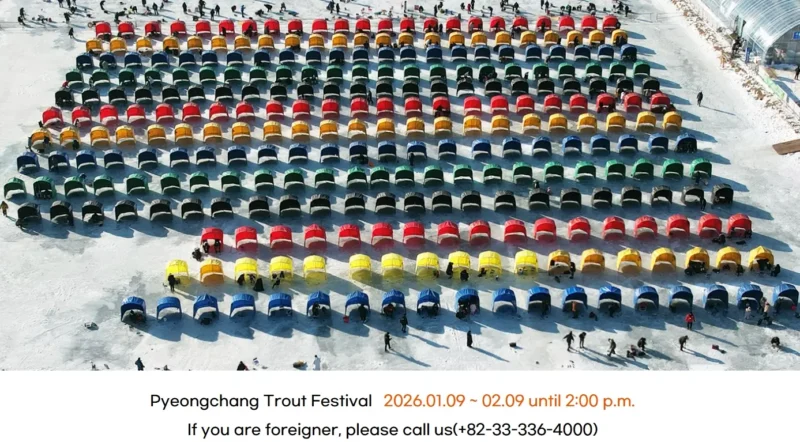⭐ Jeondong Cathedral – Where Beauty, Faith, and Tragedy Meet at the Entrance of Jeonju Hanok Village
1. Introduction
Jeondong Cathedral rises above the wooden rooftops of Jeonju Hanok Village like a quiet guardian of the past—
a red-brick landmark that blends elegance, solemnity, and architectural grace.
Designated as Korea’s Historic Site No. 288, it is the first Western-style cathedral built in the Honam region and a striking fusion of Romanesque and Byzantine elements.
Standing before its warm brick walls, the blooming crape myrtles of summer, or the soft winter light filtering through its stained-glass windows, you immediately feel the contrast—
Europe meets Korea, faith meets history, beauty meets sorrow.
Jeondong Cathedral
🌏 Before You Head Out
Before you head out, make sure to download the Naver Map app — it’s the most accurate navigation app in Korea.
Unlike Google Maps, which often struggles with Korean addresses and routes, Naver Map provides precise walking, driving, and public transport directions in English.
Available on both Android and iOS, it’s your best companion for navigating anywhere in Korea, whether you’re looking for hospitals, clinics, pharmacies, government offices, tourist attractions, restaurants, or simply getting around the city.
👉 Download Naver Map (Google Play) | App Store
2. A Cathedral Built on a Martyrdom Site
Jeondong Cathedral holds a profound and painful story.
This very ground was the site of the first Catholic martyrdom in Korea.
In 1791, converts Yun Ji-chung (Paul) and Kwon Sang-yeon (James) refused to perform traditional Confucian ancestral rites and instead followed Catholic teachings.
Their decision led to the Jinsan Incident, the spark of the major Catholic persecutions that followed, the Sinyu Persecution of 1801.
Both men were executed outside Jeonju’s southern gate—exactly where the cathedral stands today.
In 1891, French priest Fr. Baudounet purchased the land to commemorate the martyrs, and the cathedral later rose upon this sacred site.
Inside the sanctuary, beneath the altar, lie the remains of Yun Ji-chung, Kwon Sang-yeon, and Yun Ji-heon, whose relics were rediscovered in 2021—
a powerful reminder that Jeondong Cathedral is not just a church, but a living shrine of Korean Catholic history.
Jeondong Cathedral – Credit: 국가유산청
3. Architecture – A Harmony of Romanesque & Byzantine Styles
Construction began in 1908 and was completed in 1914, designed by Fr. Victor Poisnel, who also participated in the building of Myeongdong Cathedral in Seoul.
Jeondong Cathedral showcases:
A prominent central bell tower with flanking stair-towers
Rounded Romanesque arches
Softly illuminated stained-glass windows
A warm contrast of red and gray bricks
But the most striking architectural detail lies beneath the surface.
⭐ Stones stained with history
Some foundation stones were taken from the destroyed fortress wall of old Jeonju.
Historians believe that a portion of these stones came from the very wall where the martyrs’ heads were once displayed—stones said to have absorbed their blood.
To stand on this ground is to stand on a layered history of faith, sacrifice, and the city’s unspoken past.
Few places in Korea offer such a direct, intimate encounter with history.
Jeondong Cathedral – Credit: 국가유산청
4. The People of Jeondong Cathedral
Jeondong Cathedral is deeply tied to the early Korean Catholic community and its foreign missionaries.
Yun Ji-chung & Kwon Sang-yeon – Korea’s first Catholic martyrs
Fr. Baudounet – purchased the execution site and established the first mission
Fr. Victor Poisnel – architect of Jeondong Cathedral
Fr. Didier t’Serstevens (Ji Jeong-hwan) – Belgian missionary who contributed to the birth of Imsil Cheese
In 2014, Pope Francis visited Korea and beatified 124 Korean martyrs, including Yun Ji-chung and Kwon Sang-yeon, bringing renewed global attention to Jeondong Cathedral.
Jeondong Cathedral – Credit: 국가유산청
5. Walking Highlights – What to See
Jeondong Cathedral is one of those places best experienced slowly, with time to appreciate its quiet details.
✔ Crape Myrtle Garden
Bright pink flowers in summer create a warm, romantic atmosphere.
✔ The Bell Tower & Rose Window
A classic Romanesque profile rising above hanok rooftops.
✔ Stained Glass Interior
Color and light change dramatically throughout the day
(photography may be limited during Mass hours).
✔ Old Priest’s Residence & Education Buildings
Rows of red-brick structures that hold decades of history and spiritual life.
6. Visitor Tips
Mass Hours: Interior access may be limited during Mass—check the schedule beforehand.
📌 Sunday Mass
6:00 AM
9:00 AM
10:30 AM (Sung Mass / Main Sunday Mass)
5:00 PM (Youth Mass)
📌 Saturday (Vigil Mass)
4:00 PM (Pilgrims’ Mass)
📌 Weekday Mass
🔹 Early Morning Mass
6:00 AM (Mon–Sat)
🔹 Morning Mass
11:00 AM (Tue–Fri)
7. Nearby Attractions
8. How to Get There
📍 Jeonju Station → Jeondong Cathedral / Hanok Village
Naver Map: https://naver.me/F4Ldhgv9
(Google Map link can also be added on request.)
Nearby Bus Stops
Nambu Market
Jeondong Cathedral / Hanok Village
Pungnammun Gate
Nambu Market Square
📍 Recommended Tour Route: to Jeondong Cathedral: https://naver.me/xXwb1h4b
9. Private Tours (Klook / GetYourGuide)
✔ Klook Jeonju Experiences – Easy booking, English-friendly options
✔ GetYourGuide – Top-rated cultural and historical tours
✔ Viator: All Jeonju Tours & Excursions in 2025
10. Next Destination – Jeonju Hanok Village
Stay tuned for Jeonju Travel Guide 2, featuring the heart of Hanok Village and its hidden alleys, viewpoints, and traditional charm.
Also, leave the city’s calm architecture behind and head to Breathtaking Naejangsan Autumn Foliage & Ultimate Jeongeup Travel Guide 2025 where autumn foliage paints the mountains in brilliant hues. It’s the perfect next stop after Jeonju for nature, reflection, and unforgettable photos.”
11. Affiliate Disclosure
Some links in this post are affiliate links. If you make a purchase through them, you won’t pay extra—but Lucia’s Travel Studio may earn a small commission that helps keep this travel content alive and growing. Thank you for your support!
